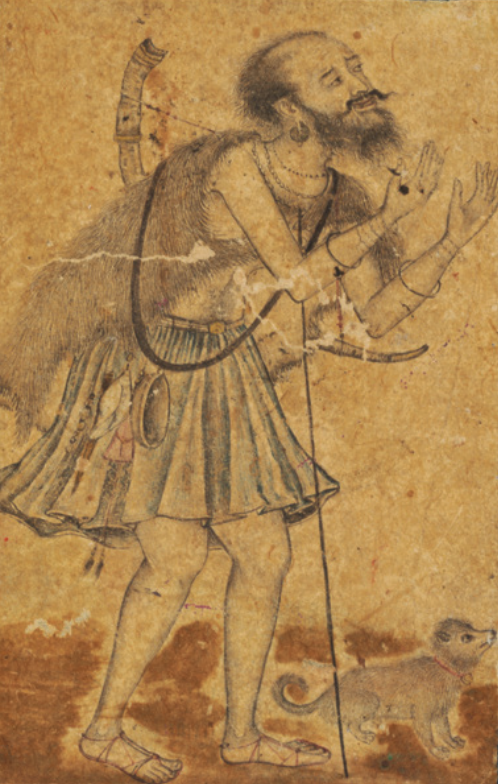
Welcome to our newsletter, dear reader,
• We begin our monthly selection with an article about “African Traditional Religion” reflecting on the essential convergence, the unanimity of the many native African religious paths and practices, allowing us to see beyond reductionist and trite labels like animism or pantheism.
The Ewe-speaking people speak of Him as Nana Buluku (Ancient of Days), and this suggests His eternity. In Ghana, He is called Onyame, the Great and Shining One who is high and above all. “In very precise language,” says Professor Mbiti, “the Bacongo describe the self-existence of God when they say, that “He is made by no other, no one beyond Him is.” We see, then, that the greatest emphasis is on the Supreme Being. The ultimacy, wherever you go in Africa, is accorded to God.
• Next we have a chapter from Murad Khan Mumtaz’s masterful Faces of God, “Sufi in the Garb of a Yogi”, showing how Indian court artists between the fifteenth and seventeenth centuries employed the image of the yogi as a symbol for a uniquely Islamic mystical ideal. Studying the images of Hindu ascetics in the iconography of Muslim devotion provides a unique window into larger networks of Hindu-Muslim interaction.
Ample visual evidence shows that wandering jogis and dervishes alike kept companion animals. Contemporaneous literary references suggest that in addition to acting as loyal companions for mendicants journeying alone in the wilderness, dogs also served an important symbolic function. The animal is a regularly occurring motif used by all of the great classical Persian poets from Rumi to Amir Khusro. In their poetry, the dog reflects a dual nature that converges in the image of the dyadic human soul.
A Qalandar with a dog, attributed to Basavan, ca. 1590.
• And we complete our selection with an article by M. Ali Lakhani on “Detachment and Spiritual Courtesy,” shining a traditional light on the often overlooked spiritual and metaphysical roots of everyday detachment and courtesy.
It is a curious fact of modern lives, particularly in urban societies, that people are increasingly hard-edged and jaded, burying their vulnerabilities deep within an exterior of toughness and resignation. Their detachment renders them capable of gazing vacantly at images of violence and depravity or of shrugging indifferently at news of war, famine or disaster. For them, in the words of Tennessee Williams, “happiness is insensitivity”. This insensitivity — the detachment of modernity — is very different to the quality of detachment advocated by tradition as a virtue.
The post African Tradition, Faces of God, and True Detachment first appeared on The Matheson Trust.
Más info en https://ift.tt/cv32brN / Tfno. & WA 607725547 Centro MENADEL (Frasco Martín) Psicología Clínica y Tradicional en Mijas. #Menadel #Psicología #Clínica #Tradicional #MijasPueblo
*No suscribimos necesariamente las opiniones o artículos aquí compartidos. No todo es lo que parece.

No hay comentarios:
Publicar un comentario